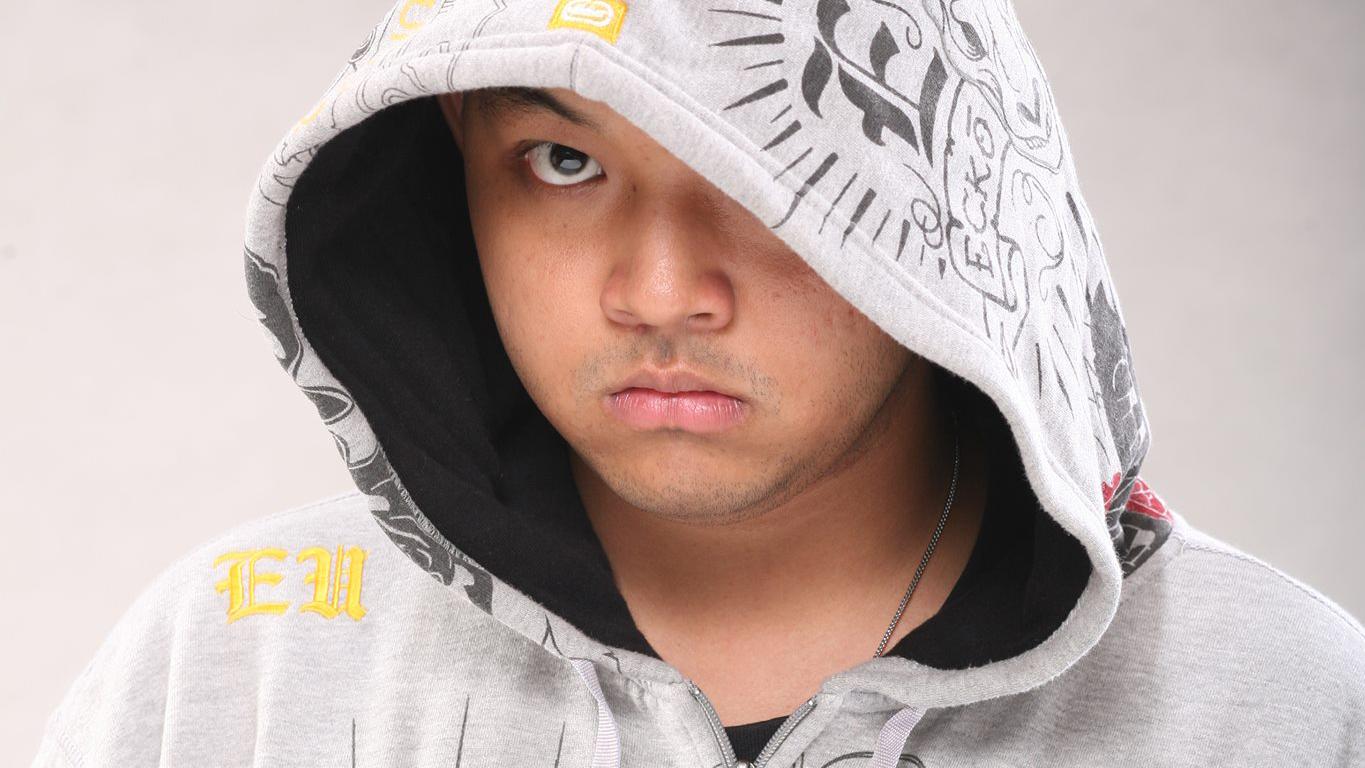This Burmese rapper sounds straight outta Compton, with a swagger to match
Burmese rapper J-Me is an American-style rapper in Burma.
Despite years of isolation, American pop culture has always had a place in Burma, also known as Myanmar — if you knew where to look.
From pretty-boy rappers who style themselves after slick Korean pop stars to emcees who consider themselves the resurrection of hip hop in Asia, hip hop in Burma is huge. One of the rappers currently towering at the top of the scene is J-Me.
"A Myauk Htal Ka A Pauk" (Some of the lyrics in this song may not be appropriate for all audiences.)
To hear him speak, you’d think he was from Compton or Brooklyn — depending upon where you call home – but J-Me was born and raised in Burma. He's been into hip hop ever since he heard his sister's MC Hammer and Vanilla Ice records in the early 90s.
In 2000, the Burmese rap group Acid swept to the top of the local pop charts. Credited with being the first home-grown rap act, they captured the hearts of Burmese youth and inspired a generation of Burmese rappers, J-Me included.
J-Me actually didn’t want to speak to me. He said he was sick of foreign journalists parachuting into Burma and ogling local musicians like they were animals at the zoo. J-Me cares deeply about his country. But like artists the world over, he wants to gain respect for his work — and not because he’s from a faraway place that was long governed by a dictator.
So he had one stipulation after I finally convinced him to meet me: no politics.
What J-Me raps about is life, as he sees it. Rapping about real life may not seem all-that revolutionary, but during Burma’s 60 years as a military dictatorship, “reality” was something only the military got to decide. Until hip hop got big, most popular music in Burma was either traditional-style or saccharine love songs — because that’s what made it past the censors.
J-Me may have only winked at politics, but he did still butt heads with the censorship board.
“They’re like your high school teacher,” he said. “They will scratch some lines out if they don’t like it, and say 'you cannot say that.' If I was gonna talk about a woman’s body parts, you know, I couldn’t say, 'Hey, you got nice hips.' I couldn’t say that."
Burmese artists always had ways of getting around the rules, though, often using double meanings to say one thing, while implying another. In less than family-friendly language, J- Me explains that his catchy song "Burn ‘Em Up" is both a backhanded reference to drug culture and a suggestion for what he thinks should happen to people who are “screwing up the world.” Censorship in Burma was officially abolished last August.
"Burn 'Em Up" (Some of the lyrics in this song may not be appropriate for all audiences.)
When he's not laying tracks, J-Me moonlights as a film producer for his dad, a famous Burmese rock star-turned-movie director. Last month, he started writing a weekly column for a local newspaper. But he definitely has no plans to step out of the music world anytime soon.
Recently, a local club in Yangon hosted an event to celebrate 40 years of hip hop worldwide and 13 years of hip hop in Burma. All of Burma's hip hop royalty was on hand, but the teenager next to me had eyes only for one: J-Me.
There are plenty of young upstarts on the Burmese hip hop scene, but for now, J-Me's still flying high.
J-Me's latest album is a collaboration called Chill Session.
In this promotional video for Myanmar's hosting of the Southeast Asian Games, J-Me comes in at 1:20.
Every day, reporters and producers at The World are hard at work bringing you human-centered news from across the globe. But we can’t do it without you. We need your support to ensure we can continue this work for another year.
Make a gift today, and you’ll help us unlock a matching gift of $67,000!
